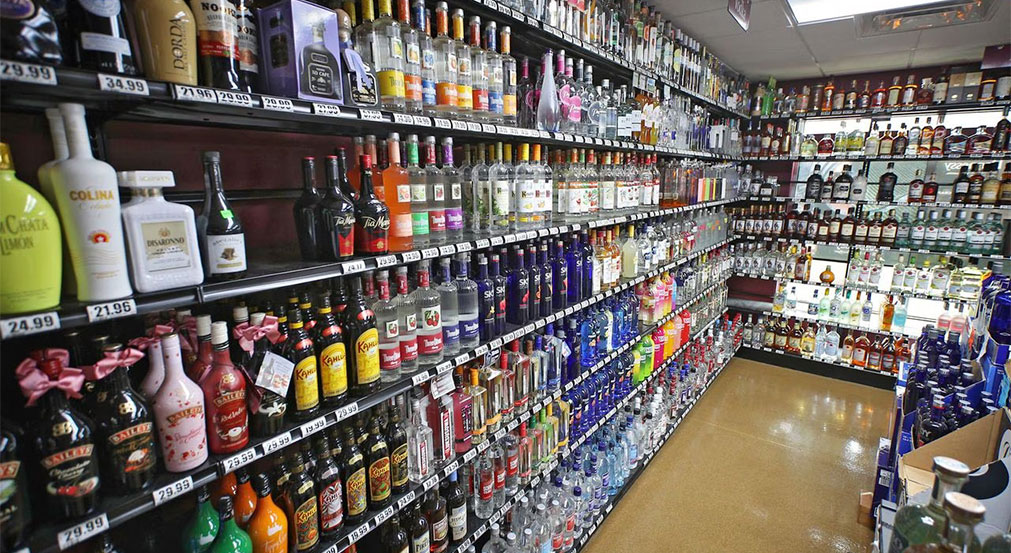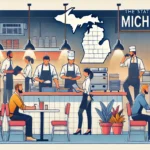Are you interested in buying or selling a liquor store in the state of Michigan? A properly run liquor store can be profitable and a highly desirable business opportunity for many business owners. Liquor stores have proven time and time again to be able to withstand various market and economic conditions. According to Market Watch, “Michigan easily leads all control states in total spirits volume and dollar sales. While dipping 0.3% last year, Michigan spirits volume is still up 953,000 cases, or 11.2%, since 2019. Michigan’s spirits sales are $415 million greater than those of No.-2 Ohio. By case volume, Michigan leads Pennsylvania, No.-2 in volume, by about 670,000 cases.”
Finding a liquor license and store can be challenging due to high demand, availability, and competitive market space. We can help you every step of the way. Our experienced attorneys and real estate professionals understand the hospitality and retail industries, and the current market trends, and know what buyers and sellers are looking for in this industry. We have performed liquor store valuations and closed numerous liquor store deals and can get the deal done for you.
Understanding Liquor Profitability
Regardless of the size of your business or potential business, we know that there are expenses that occur only once and others that will be ongoing. As a business owner, the expenses need to be considered when you are considering developing your business plan, your pricing strategy, and the desired profit margins you wish to earn. Expenses will range from inventory, utilities, rent/building costs, taxes, and fees, and can include additional operational costs. Educating yourself about your current or target industry and its market, positioning, and competitors, among several other things, will help make you competitive and profitable. Typically, a liquor store’s profit margins will range from 20-30%. When buying or selling a liquor store, the profit margin will be compared to the industry standard.
Every store will be different based on a wide variety of factors from the location of the store, how many competitors are nearby, the inventory, the rent/building expenses, personnel and staffing, and any marketing, along with other operational costs. Each of these things will and can affect the bottom line of liquor store profits. High-grossing liquor stores in proven locations are hard to duplicate, therefore it carries a higher value and will sell for higher multiples. While liquor stores are valued as a multiple of earnings, the multiples vary across the United States. A valuation multiple can be thought of as a ratio; a simple comparison of two things to each other. Two multiples that are looked at are Seller’s Discretionary Earnings (SDE) and Earnings before Interest, Taxes, Depreciation, and Amortization (EBITDA).
From the business owner’s perspective, calculating Seller’s Discretionary Earnings (SDE) allows for value maximization of the business before any transactions occur. Seller’s discretionary earnings is a cash-flow-based measure of business earnings in an owner-operated business company’s operating profitability and adding in potential expenses that might not apply to the new owner. Traditionally, going through this process helps the owner decide which types of expenses and incomes to include in the business valuation. It accounts for the profit before tax and interest of a business before owner’s benefits, non-cash expenses, one-time investments, and other non-related business incomes and expenses. This information helps buyers get a sense of what their potential ROI will look like.
Using your SDE, you can calculate the implied value of a business by taking the number and multiplying it by the most recent 12-month period revenue.
Using your EBITDA can gauge and show a business’s implied ROI. However, this metric is not recognized under generally accepted accounting principles and it is often scrutinized since it omits capital costs and inflates profitability. Even the U.S. Securities and Exchange Commission (SEC) requires listed companies to reconcile any reported EBITDA figures with net income.
Other factors that can affect a business’s valuation are circumstances in which the business is being sold, licensing issues, gross profits, lease terms, personnel, tax issues, competition, cash flow, and many more.
Factors of Profitability and Valuation
Location. This is one of the most important aspects to consider when deciding to buy or sell a liquor store. Some locations will be more profitable than others just because of where they are. How many other liquor stores are there nearby? If there are too many nearby, it will be more competitive. If you are the only business within a certain-mile radius that is servicing customers, will it be enough volume to generate the cash flow you need to produce your desired profit margin? For Sellers, high-performing stores that are strategically located will have more value.
Our experienced attorneys and real estate professionals can help you with buying or selling liquor licenses, businesses, and real estate. Schedule a consultation to discuss how we can help you move forward.
Business Model/Type. There are plenty of other types of businesses that sell liquor where it is not their primary product. Restaurants, convenience stores, gas stations, and grocery stores are great examples of types of businesses that will have inventory that is more selective and limited based on the needs of its customers. Since these businesses offer other products where the focus is not on liquor, they may not be as concerned about having a huge profit margin.
Different types of businesses that sell alcohol will have a different ways to account for costs. While restaurants and bars may seem like they have an advantage over liquor stores since they do not charge for the “entire” bottle or pack, there are costs that get factored into “pour costs.” You must have a place to house and serve guests, employees to provide service, and other operating costs that all get factored in to get the liquor to the customers. Therefore, bars and restaurants require higher profits than a standard liquor stores. But if you compare a liquor store to a gas station or grocery store, the profit margins will be lower.
Again, based on what type of business you have or are interested in, liquor profit margins will vary. Having an accurate valuation done will determine how desirable a liquor-related business will be to a potential buyer and influence the list price for sellers.
Inventory Selection. Depending on the type of business and license an owner obtains, purchase price and ultimately, customer price will vary. Whether you are a distributor, liquor store, or bar, strategically curating what you offer and understanding customer demand will affect your sales performance. This all goes back to determining what type of business you want and where you place yourself in the market that will make you profitable.
If there are several liquor stores around you, what will drive customers to your location over a competitor? How will you differentiate your business from another?
Additional Services and Events. Some businesses host different events to promote and provide different products. Vendors may come in and do tastings or businesses may need additional delivery services. Different permits need to be obtained for certain events and services based on the type of business and license you have and whether activities take place on or off-site. To find out more information about these requirements, visit the Michigan Liquor Control Commission website.
Keeping your business costs down, and knowing how to manage competition and your business operation will allow you to maximize your business’s profits. If you are starting a new business, we can assist you with entity formation, licensing, contracts, real estate, and many other foundational business services, to get your business established and operational.
For existing businesses, we offer ongoing services and counsel regarding contracts, mergers and acquisitions, real estate, compliance, business litigation, licensing, and zoning and regulatory matters.
Schedule a Consult
We can locate a liquor license and/or business or help you prepare to list your business opportunity and real estate on the market. During your consultation, we will discuss and review business profitability and valuation and other details of your plan to determine your goals and next steps.
In addition to buying or selling liquor store business opportunities, we can also assist with your real estate brokerage needs through our subsidiary, CLG Realty Advisors.





